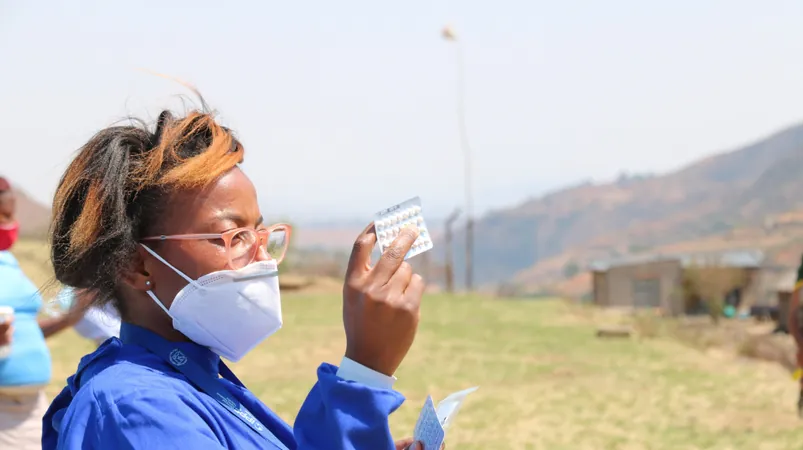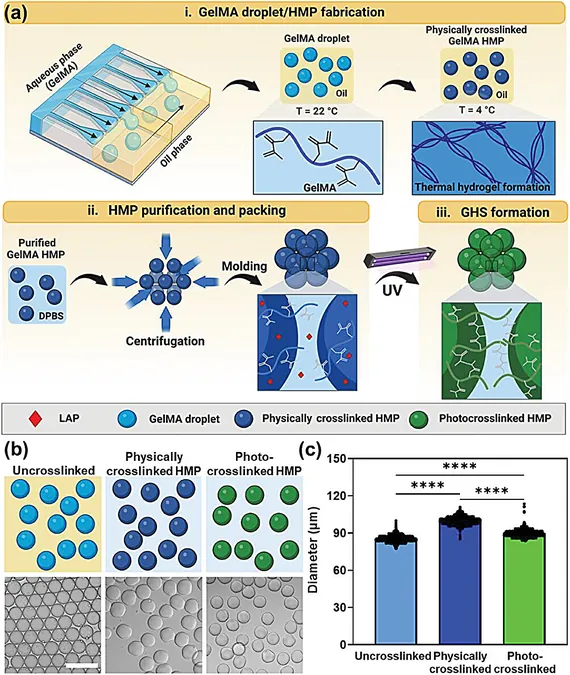
Empowering Women in Lesotho: The Urgent Need for Contraceptive Access
2024-09-25
Author: Siti
MAPOTENG, Lesotho – "I want to be pregnant when I want, not by mistake," declared 19-year-old Makhethisa during a discussion with UNFPA, the United Nations sexual and reproductive health agency. Her statement underscores a critical issue faced by many women in Lesotho, where a staggering two-thirds of pregnancies are unplanned.
Globally, unintended pregnancies represent a major crisis, but in Lesotho, the stats reveal an even graver situation. The implications of unplanned pregnancies are severe, particularly for young women. Early childbearing can lead to educational interruptions, perpetuating cycles of chronic poverty, and poses serious health risks, including complications from unsafe abortions.
Recognizing this pressing need, the Government of Lesotho is now championing contraceptive access as a fundamental right for women. "Contraception enables women and girls to plan their futures and fulfill their potential," emphasized UNFPA Executive Director Dr. Natalia Kanem. "Investing in their power to choose leads to a healthier and more equitable world for everyone."
Bridging the Gap in Family Planning
Data indicates that in 2014, 18% of women in Lesotho had an unmet need for family planning. However, initiatives supported by UNFPA that focus on enhancing contraceptive supply chains are making a significant difference. Women like Ms. Sebajoa, who expressed gratitude for the availability of contraceptives, now have the ability to plan their families more effectively.
The benefits of contraceptives extend beyond pregnancy prevention. For instance, condoms are essential in mitigating the spread of HIV, a major health concern in Lesotho where nearly 25% of women aged 15 to 49 are living with the virus. Community leaders, such as livestock herder Rantahli Mosae, are actively combating this challenge by educating peers on sexual health and distributing condoms.
A Chain Reaction of Benefits
Despite global efforts, progress in reducing maternal deaths has stalled, with Lesotho reporting a high maternal mortality rate of 566 per 100,000 live births. "There is a proven connection between unmet family planning needs and maternal mortality," commented Innocent Modisaotsile, UNFPA's representative in Lesotho. Addressing this unmet need is not just about family planning; it’s about saving lives.
Access to contraceptives can trigger profound changes for women, shifting the narrative around their autonomy and paving the way for future opportunities. By empowering women to make informed choices about their bodies, society as a whole can benefit. The call to action is clear: improving contraceptive access is crucial for building a healthier, more sustainable future in Lesotho.
Join the Movement
It's time for everyone to rally for women's rights, advocate for comprehensive sex education, and push for better healthcare services. Together, we can make a difference!



 Brasil (PT)
Brasil (PT)
 Canada (EN)
Canada (EN)
 Chile (ES)
Chile (ES)
 España (ES)
España (ES)
 France (FR)
France (FR)
 Hong Kong (EN)
Hong Kong (EN)
 Italia (IT)
Italia (IT)
 日本 (JA)
日本 (JA)
 Magyarország (HU)
Magyarország (HU)
 Norge (NO)
Norge (NO)
 Polska (PL)
Polska (PL)
 Schweiz (DE)
Schweiz (DE)
 Singapore (EN)
Singapore (EN)
 Sverige (SV)
Sverige (SV)
 Suomi (FI)
Suomi (FI)
 Türkiye (TR)
Türkiye (TR)